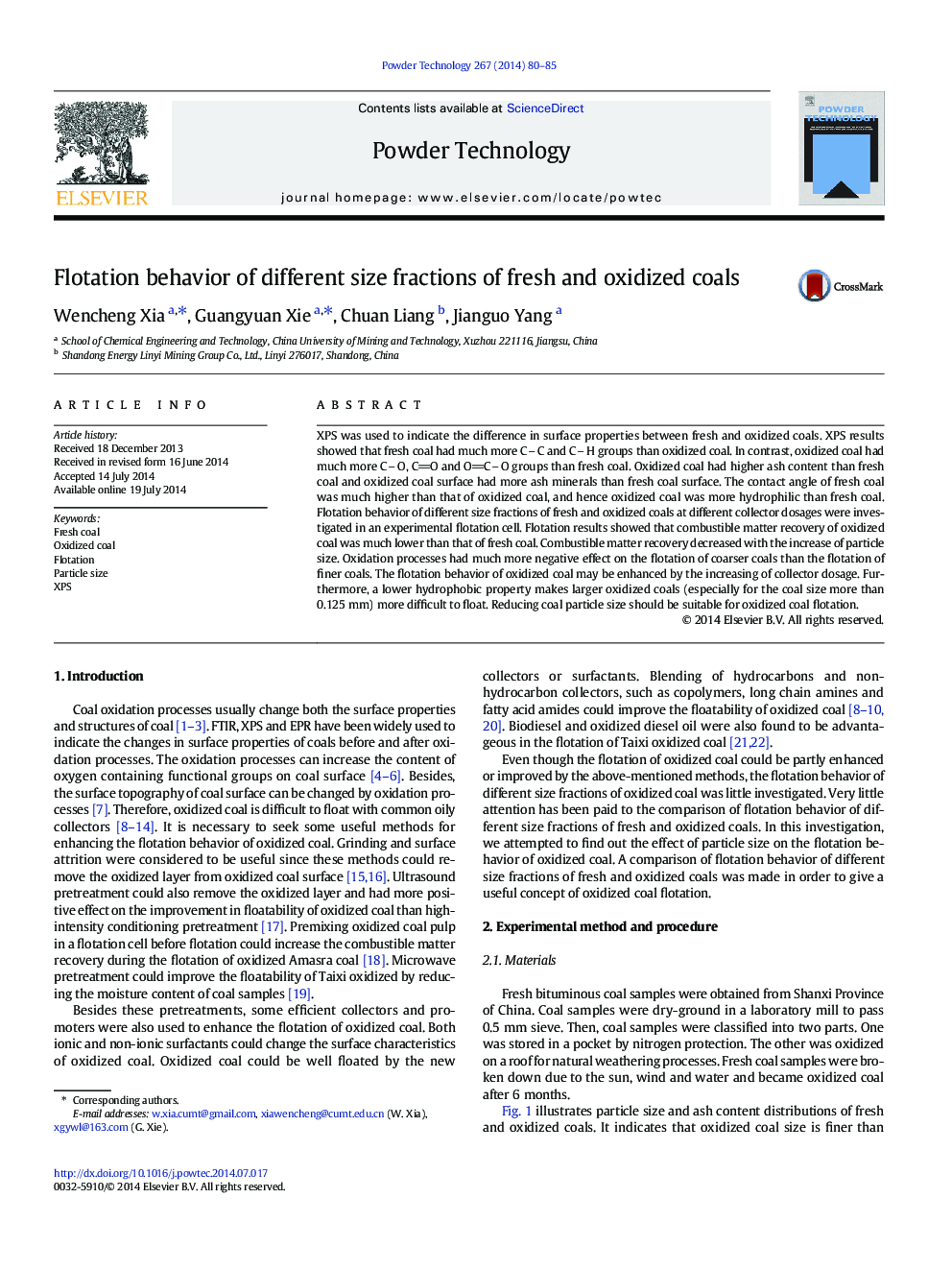| Article ID | Journal | Published Year | Pages | File Type |
|---|---|---|---|---|
| 236000 | Powder Technology | 2014 | 6 Pages |
•Difference in surface properties between fresh and oxidized coals was indicated.•Oxidation processes had more negative effect on flotation of coarser coals.•Oxidation processes had less negative effect on the flotation of finer coals.•Lower hydrophobic property makes larger oxidized coal more difficult to float.
XPS was used to indicate the difference in surface properties between fresh and oxidized coals. XPS results showed that fresh coal had much more CC and CH groups than oxidized coal. In contrast, oxidized coal had much more CO, CO and OCO groups than fresh coal. Oxidized coal had higher ash content than fresh coal and oxidized coal surface had more ash minerals than fresh coal surface. The contact angle of fresh coal was much higher than that of oxidized coal, and hence oxidized coal was more hydrophilic than fresh coal. Flotation behavior of different size fractions of fresh and oxidized coals at different collector dosages were investigated in an experimental flotation cell. Flotation results showed that combustible matter recovery of oxidized coal was much lower than that of fresh coal. Combustible matter recovery decreased with the increase of particle size. Oxidation processes had much more negative effect on the flotation of coarser coals than the flotation of finer coals. The flotation behavior of oxidized coal may be enhanced by the increasing of collector dosage. Furthermore, a lower hydrophobic property makes larger oxidized coals (especially for the coal size more than 0.125 mm) more difficult to float. Reducing coal particle size should be suitable for oxidized coal flotation.
Graphical abstractLarger oxidized coals should be more difficult to float than finer ones. The flotation behavior of oxidized coal may be enhanced by the decreasing of particle size and the increasing of collector dosage.Figure optionsDownload full-size imageDownload as PowerPoint slide
